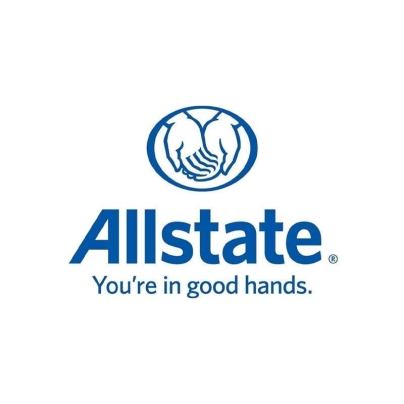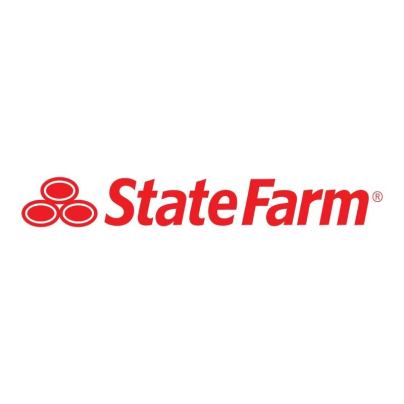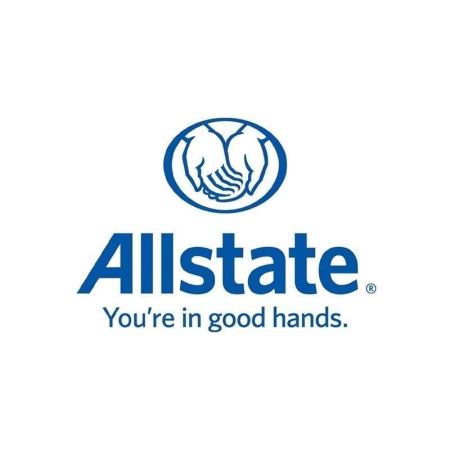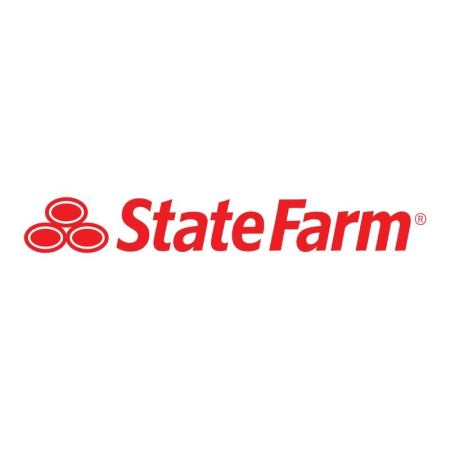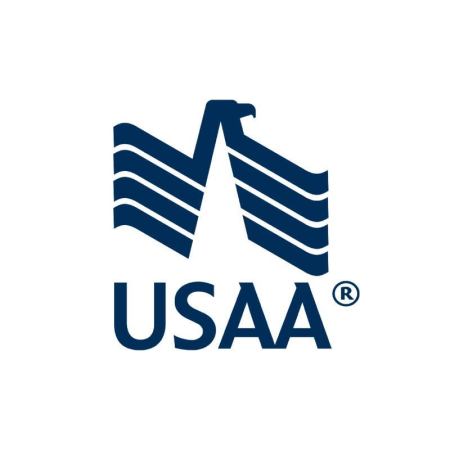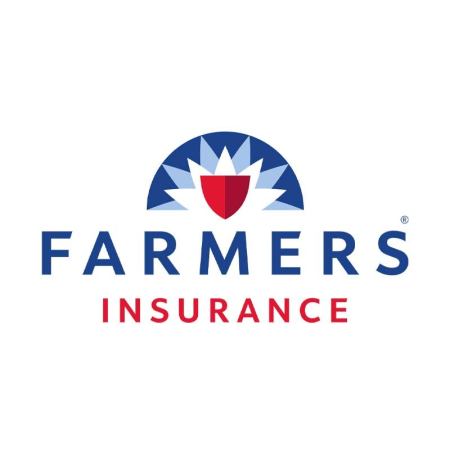We may earn revenue from the products available on this page and participate in affiliate programs. Learn More ›

Seniors have their own unique auto and homeowners insurance needs, including well-rounded coverage for both their property and vehicles. With many senior adults relying on a fixed income or living off savings, purchasing robust policies at the most affordable pricing may be the best strategy for their finances.
Fortunately, purchasing both home and auto policies from the same provider can save policyholders a substantial amount through generous bundling discounts. Beyond cost savings alone, the best auto and home insurance for seniors may offer other worthwhile benefits, such as extensive coverage options, seamless claims processes, and additional customer perks.
- BEST OVERALL: Allstate
- RUNNER-UP: State Farm
- BEST EXTENDED COVERAGE: Amica
- BEST FOR VETERANS: USAA
- ALSO CONSIDER: Farmers Insurance

What to Consider When Choosing One of the Best Auto and Home Insurance Companies for Seniors
One of the most effective methods for finding the best car insurance for seniors is shopping around and comparing multiple providers. Doing so requires customers to compare numerous factors across each insurance company so they can get an accurate snapshot of what each provider has to offer.
Coverage Area
An insurance provider will only extend policies to customers who live within its particular coverage area. Insurance companies may not offer policies in certain states or ZIP codes due to various reasons often related to risk. For instance, residents living in areas that are more prone to wildfires may have a harder time finding insurance companies offering property insurance coverage in their location.
Some providers may offer auto insurance in a particular state, but not homeowners insurance, which would make bundling impossible for residents. A potential policyholder can often find out if a provider provides coverage in their state by requesting a quote online. However, seniors may prefer to call a representative directly or work with a local agent.
Coverage Amount
Coverage amount refers to the maximum amount that an insurance provider may pay out on an approved claim. For auto insurance, states may set minimum coverage limits that every insured driver needs to carry. However, policyholders may want to raise their coverage amount if those limits are too low to provide adequate financial protection.
Coverage amounts on homeowners insurance for seniors typically vary across each type of coverage included with a policy—dwelling, personal property, personal liability, other structures, and so on. As such, there can be a wide range of coverage limits to review within a single policy. It’s important to confirm how much coverage is available for both homeowners and auto insurance, as well as any policy add-ons a senior may require.
Policy Options
Policy options—often referred to as endorsements—are a way for seniors to truly customize their insurance policies with additional coverage. There may be a wide range of options available, especially for homeowners insurance. Endorsements may include water backup coverage in the event that the home is damaged by backed-up drains or overflowing water, identity theft protection, or even earthquake coverage in some cases.
Meanwhile, a standard auto insurance policy can include a wide variety of coverage terms, such as:
- Bodily injury liability, which helps pay medical bills of others if the driver is at fault for an accident.
- Comprehensive coverage, which pays for repairs to the policyholder’s vehicle if it is damaged by covered perils such as wind and hail.
- Collision coverage, which pays for repairs to the policyholder’s vehicle if it is damaged in an accident.
Insurance Premiums
Insurance companies charge insurance premiums in return for providing coverage. These rates vary based on a huge array of factors such as the location, size, and condition of a home as well as the insured driver’s age, driving record, and claims history. Seniors’ cars, including the make, model, and year, could affect rates too. Coverage options greatly impact insurance premiums as well since policies that include higher coverage amounts or more endorsements are often more expensive than policies with more limited coverage terms.
Insurance premiums may be billed annually, monthly, or quarterly, and in the case of homeowners insurance, may come out of the policyholder’s escrow account if the policyholder has a mortgage. Payment options may be an important factor to consider depending on a senior’s budget, as some policyholders may prefer to make smaller payments each month instead of paying in full each year.
Insurance rates and payment options can vary—sometimes quite a bit so—from one provider to another. With that in mind, shopping around and getting quotes from multiple insurance companies can be a good idea so seniors can get a good deal on their home and auto policy.
Quote Process
Home and auto insurance quotes for seniors can provide an informative snapshot of how easy a provider is to work with and what policyholders can expect when they need to contact their insurance company for any reason. A company with a seamless quote process supported by responsive and knowledgeable representatives may be more likely to offer the same quality of service if a policyholder needs to make changes to their insurance or file a claim.
In addition to comparing rates and coverage options, getting a quote is also an opportunity for seniors to see what methods of communication are available with each insurance provider. Companies may allow prospective customers to get a quote online, over the phone, through a mobile app, or with a local agent. Some seniors may prefer a more personalized and hands-on experience with a local agent or by speaking with a representative over the phone, but others could appreciate the convenience of online and digital communication platforms. Options can vary from one company to another, so it may be worthwhile to consider how each provider handles its interactions with customers.
Claims Process
The claims process is another integral part of the experience with a home and auto insurance provider. When a policyholder is filing a claim on their homeowners or auto insurance, it very well may be related to a stressful event, such as a car accident, kitchen fire, or flooded basement. Working with a provider that has a streamlined claims process can make it easier for the policyholder to deal with a very difficult situation.
Providers may offer a full suite of claims handling and processing options, including over the phone, through an agent, online, or through a mobile app. Again, if a potential policyholder has a preference for submitting claims, then this is an important question to ask and verify. Another point to consider is response time, as some companies may take longer than others to get back to a policyholder after a claim has been submitted. Policyholders will want to receive their claim funds as soon as possible to pay for any covered damages, so having a quicker response time on a claim can be a top priority for some seniors.
Deductibles
Deductibles are another factor impacting the cost of premiums and how much money a policyholder receives from a payout as a result of a claim. While many people assume a deductible is an out-of-pocket expense, that’s actually not the case when it comes to homeowners insurance. With a homeowners insurance claim, the provider will deduct that amount (the deductible) from the total payout on an approved claim. For instance, if a homeowner files a claim for $10,000 and has a $1,000 deductible, then they would receive $9,000 from their insurance company if the claim is approved. With auto insurance, policyholders do pay the deductible amount out of pocket for any covered repairs. If an insurance company approves a claim for $2,000 worth of repair work and the policy has a $500 deductible, then the provider would pay out $1,500, leaving the policyholder to cover the difference.
Insurance companies often offer a range of deductible options, especially in regard to homeowners insurance. Policyholders may be able to select a set amount, such as $2,000, or pick a deductible that’s based on a percentage of their dwelling replacement coverage. While a lower deductible may be preferable in some cases, it often results in higher premiums since insurance companies will raise their rates in response. Alternatively, picking a higher deductible will likely lead to lower premiums.
Additional Policies
Another consideration when choosing providers is whether there’s a need for additional policies beyond auto and homeowners insurance. For seniors who have a range of insurance needs, such as life insurance, taking on additional policies through the same provider may offer additional discount opportunities.
Not only can purchasing additional policies through the same provider save the policyholder money in the form of steeper discounts, it can make insurance policy management easier overall. Some seniors may appreciate having only one provider to work with when making payments, updating policies, and filing claims, especially if they have a strong relationship established with their provider.
Discounts
With homeowners and auto insurance, discounts can greatly impact how much a policyholder pays for their coverage. Insurance providers may offer a wide range of discounts across both home and auto coverage, including discounts for bundling insurance, enrolling in paperless billing, setting up automatic payments, or going an extended period of time without filing a claim.
Homeowners insurance discounts for seniors might include savings for installing protective devices such as security systems in the home, buying a new home, or making weather-resistant upgrades to the roof or windows. Drivers may be able to save money on their auto insurance by enrolling in driver safety courses or installing anti-theft devices, among other discounts. Some states may even have government-mandated auto insurance discounts for seniors, but availability will vary. In fact, for drivers over 50, car insurance may be more expensive depending on their location and the provider.
AM Best Ratings
Many people prefer to work with an insurance provider that has proven itself to be reliable and trustworthy, but these characteristics can be difficult to gauge when shopping around for the best home and auto insurance bundles. This is where AM Best ratings can be very helpful to a prospective customer. AM Best is a third-party credit-rating agency that specializes in evaluating the creditworthiness and financial stability of insurance providers, using a rating system from D (Poor) to A++ (Superior).
While a policyholder likely can’t research the details of a company’s financial statements and performance on their own, AM Best does this work for consumers, assigning a rating based on the findings. Seniors may want to seek out companies with higher AM Best ratings, as they are more likely to be financially stable and trustworthy.
Our Top Picks
The best auto and home insurance for seniors may be able to offer robust standard coverage, a range of endorsements, generous discounts, high AM Best ratings, and other critical factors that affect the overall customer experience.
Best Overall
Allstate
See ItWhy It Made the Cut:
A substantial water backup endorsement and multiple bundling options are just two of the reasons Allstate is a top choice for home and car insurance for drivers over 50.
Seniors looking to purchase multiple types of insurance may appreciate that Allstate supports the ability to bundle more policies than only homeowners and auto insurance. This could make it easier to manage insurance needs for customers who are also in the market for life, boat, or RV insurance, among other options. While Allstate doesn’t offer online quotes on homeowners insurance for all ZIP codes, coverage is still available in many parts of the country as Allstate provides property insurance in 49 states and Washington, D.C.
Allstate offers numerous ways to customize a home and auto policy including adding up to $50,000 in water backup coverage for the home, which could help pay for water damage that might otherwise not be covered by homeowners insurance. Customers can also enroll in the company’s online personal information protection program, which can help cover the costs to remediate identity theft and fraud. The company also offers a low $500 deductible option on homeowners insurance policies. Having a lower deductible could lead to higher payouts if customers need to file a claim.
Specs
- Coverage area: 49 states and Washington, D.C.
- Quote process: Online, phone, agent
- Claims process: App, online, phone, agent
- Bundling discount: Up to 25 percent
- Deductibles: $500 to $5,000; 1 percent or 2 percent; Wind/hail: $1,000 to $5,000; 1 percent or 2 percent
- AM Best rating: A+
Pros
- Ability to bundle multiple policy types
- High $50,000 water backup coverage available
- Low $500 deductible option
- Optional online personal information protection
Cons
- Online quote not available in all ZIP codes
Runner-Up
State Farm
See ItWhy It Made the Cut:
State Farm offers a generous bundling discount on home and auto insurance of up to 35 percent, which could help seniors save money on their policies.
State Farm offers policyholders numerous reasons to choose the provider for both their homeowners and auto insurance needs. For starters, anyone bundling home and auto could receive a generous 35 percent discount, which is very high for a bundling discount. Although other discount opportunities are somewhat limited, the potentially large home and auto bundle discount could provide ample savings on homeowners and auto insurance coverage.
State Farm also impresses with its A++ AM Best rating, which is the highest grade an insurance company can receive from the credit-rating agency and may reflect the provider’s reliability and trustworthiness. One unique feature State Farm offers is the Good Neighbor Connect platform, which allows customers to speak to their designated agent online over a video call. This option could save them a trip to the agent’s office while still providing face-to-face communication, which may appeal specifically to policyholders with mobility issues.
Specs
- Coverage area: 47 states and Washington, D.C.
- Quote process: Online, phone, agent
- Claims process: App, online, phone, agent
- Bundling discount: Up to 35 percent
- Deductibles: $5,000 to $10,000; 0.5 percent, 1 percent to 5 percent
- AM Best rating: A++
Pros
- Generous 35 percent discount on home and auto bundles available
- Convenient virtual agent support via online video meetings
- A++ AM Best rating
Cons
- Limited discount opportunities
Best Extended Coverage
Amica
See ItWhy It Made the Cut:
Amica offers high limits on certain types of coverage as well as low deductible options, so seniors can customize their policies to get the insurance they need.
Amica is another fantastic option for seniors who want to bundle their home and auto insurance, especially if they are looking for higher limits on extended coverage. For instance, policyholders can purchase personal liability coverage for up to $2 million, which is quite high for this type of coverage and could financially protect seniors if they are found liable for property damage or injuries to a third party. They can also add a water backup endorsement with coverage limits as high as $50,000. Having this extended coverage could help pay for water damage resulting from backed-up sewer drains or other instances of overflowing water that wouldn’t typically be covered by a standard homeowners insurance policy.
It’s worth noting that Amica’s rates may be relatively high, depending on coverage selections, and customers will need to pay for 2 months of coverage up front when buying a policy. However, Amica also offers deductibles as low as $500, which could lead to larger payouts on claims for policyholders who select that option.
Specs
- Coverage area: 48 states and Washington, D.C.
- Quote process: Online, phone, agent
- Claims process: App, online, phone, agent
- Bundling discount: Up to 30 percent
- Deductibles: $500 to $25,000; Wind/hail: $500 to $25,000; 1 percent to 5 percent
- AM Best rating: A+
Pros
- High $2 million personal liability coverage available
- High $50,000 water backup coverage available
- Low $500 deductible option
Cons
- Relatively high insurance premiums
- 2 months’ worth of payment due up front
Best for Veterans
USAA
See ItWhy It Made the Cut:
Eligible veterans and their families can purchase a USAA insurance policy anywhere in the country, and the standard replacement cost coverage for homeowners insurance may be equally appealing.
USAA is another strong option for the best home and auto insurance coverage for seniors, assuming they meet the company’s eligibility requirements. USAA membership is limited to active or former service members, as well as select immediate family members, but those who are eligible can get a policy from anywhere across the country because USAA provides homeowners and auto insurance in all 50 states and Washington, D.C.
Although there is limited policy information online, particularly in terms of coverage limits and deductible options, USAA does highlight its standard replacement cost coverage that is included in every homeowners insurance policy. Having replacement cost coverage means that insurance providers do not account for depreciation when determining the value of covered possessions so a customer may receive a larger payout on their insurance claims. This isn’t typical of a standard homeowners insurance policy and may cost extra when available as an endorsement with other companies. USAA also holds an A++ rating from AM Best, and seniors may prefer to use a company that’s held in such high esteem by the credit-rating agency.
Specs
- Coverage area: 50 states and Washington, D.C.
- Quote process: Online (for USAA members), phone
- Claims process: App, online, phone
- Bundling discount: Up to 10 percent
- Deductibles: Unknown
- AM Best rating: A++
Pros
- Nationwide availability
- Standard replacement cost coverage for homeowners insurance
- A++ AM Best rating
Cons
- USAA membership limited to service members and their families
- Limited policy information online
Also Consider
Farmers Insurance
See ItWhy It Made the Cut:
Farmers Insurance offers competitive insurance rates and discounts, plus high coverage limits on personal liability insurance.
Farmers Insurance is worth considering as an insurance provider, especially for seniors looking for affordable rates on their home and auto coverage. The company’s premiums on homeowners and auto insurance are relatively low, which could mean that customers are able to get a good deal on their insurance even before accounting for any discounts. Opportunities to lower premiums are available as well, and seniors may be especially interested in the company’s safe driver discount for policyholders aged 55 and older.
Prospective customers may want to keep in mind that homeowners insurance is only available in 42 states, but that still covers a large section of the country. Also, Farmers Insurance’s A rating from AM Best rating is relatively low but still considered strong overall, as it denotes a company that has an “Excellent” capacity to meet its financial obligations. Another standout feature is the high $2 million personal liability coverage available for homeowners insurance. This may be ideal for anyone concerned about paying out of pocket for damages they may be liable for.
Specs
- Coverage area: 42 states
- Quote process: Online, phone, agent
- Claims process: App, online, phone, agent
- Bundling discount: 20 percent, on average
- Deductibles: $1,000 to $10,000; 0.5 percent to 5 percent; Wind and hail: $1,500 or $2,500; 1 percent to 5 percent
- AM Best rating: A
Pros
- High $2 million personal liability coverage available
- Relatively low insurance premiums
- Safe driver discount for policyholders aged 55 and older
Cons
- Relatively small 42-state coverage area
- Relatively low “A” AM Best rating
Our Verdict
Allstate is our selection for Best Overall because of the option to bundle several different types of policies, purchase high water backup coverage, and choose a low deductible. The Runner-Up award goes to State Farm due to the substantial bundling discount available and option to connect with local agents virtually.
How We Chose the Best Auto and Home Insurance Companies for Seniors
When determining the best auto and home insurance for seniors, our research weighed the availability, coverage, and cost of each insurance provider’s policies, as well as additional benefits and experiential considerations that might factor into a senior’s decision. With that in mind, each company’s service area was a top concern, as its home and auto policies may not be available in all areas of the country.
Coverage terms, including both standard and add-on options, were heavily weighed as well, as they inform both what is insured under a policy and for how much. Our research also looked at various cost factors that might affect the affordability of home and auto insurance, including premiums, discounts, and deductibles. AM Best ratings were considered as well since they can shed light on each provider’s financial stability and reliability.
Before You Choose One of the Best Auto and Home Insurance Companies for Seniors
Before choosing a provider for auto and home coverage, it’s a good idea to compare multiple insurance companies and see what they have to offer. When shopping for homeowners insurance and auto insurance, seniors may want to pay close attention to coverage terms and exclusions in addition to cost considerations. To find home and auto policies with the right coverage, shoppers will need to know exactly how much homeowners insurance they need beforehand.
Potential policyholders may also benefit from reading online reviews from current and former customers. Doing so can shed light on the customer experience, especially in regard to filing a claim and receiving an insurance payout.
Cost of Opting for One of the Best Auto and Home Insurance Companies for Seniors
Insurance costs for seniors can vary significantly from one provider to another, which is another reason comparing multiple providers is often recommended. The average cost of homeowners insurance is $1,383 per year, but a policyholder’s exact rates will depend on their coverage options, location, and discounts, among other factors. For auto insurance, the driver’s age, location, driving history, and vehicle can all impact insurance rates. These factors are worth keeping in mind when looking for low-cost auto insurance for seniors.
Bundling home and auto insurance can help lower the overall cost of coverage since providers typically offer a discount to policyholders who purchase both forms of insurance. These discounts can be quite large, too, so seniors may want to compare bundling options when shopping for the best homeowners insurance as well as auto coverage. With that being said, while cheap homeowners insurance for seniors may be appealing, quality of coverage should always be an important factor as well.
The Advantages of Opting for One of the Best Auto and Home Insurance Companies for Seniors
Purchasing coverage from the best auto and home insurance companies for seniors may offer numerous advantages, such as a large discount on coverage and a more streamlined approach to managing home and auto policies. Using one provider for both home and auto insurance needs can be much easier to manage on a regular basis since policyholders only have one account to worry about for all of their insurance needs. Having sufficient coverage may offer tremendous peace of mind as it may otherwise be difficult—if not impossible—to cover the cost of repairs to a senior’s home or auto entirely out of pocket.
By bundling with the best home and auto insurance companies, seniors may enjoy other benefits and perks as well, including:
- Extensive coverage options through endorsements such as water backup coverage and identity theft protection.
- High coverage limits on certain forms of insurance such as personal liability coverage.
- Robust standard coverage terms that may include replacement cost coverage.
FAQs
Seniors may have a number of questions regarding their home and auto insurance coverage options, especially as they start shopping around and comparing providers. Knowing the answers to several of the most common questions up front may help provide further clarity before they get a quote or speak to an agent.
Q. Which age has the highest monthly cost for auto insurance?
Rates can vary significantly from one age group to another, but teenagers are likely to be the most expensive drivers to insure.
Q. What is the oldest age to still be eligible for home and auto insurance?
Insurance companies cannot deny auto coverage based on age, but an older driver may face higher rates due to the heightened risk of getting into an accident. The age of a homeowner shouldn’t affect the cost of their property insurance at all, though.
Q. What age is considered senior?
Generally speaking, people aged 62 and over are considered senior adults. That being said, Medicaid eligibility, which some use as a benchmark to decide if a person is a senior citizen, isn’t offered until age 65.
Q. Which state has the most insurance lawsuits?
Florida has the most insurance lawsuits with data showing 79 percent of all homeowners insurance lawsuits in the nation were filed in Florida from 2019 through 2021, according to the Insurance Information Institute.
